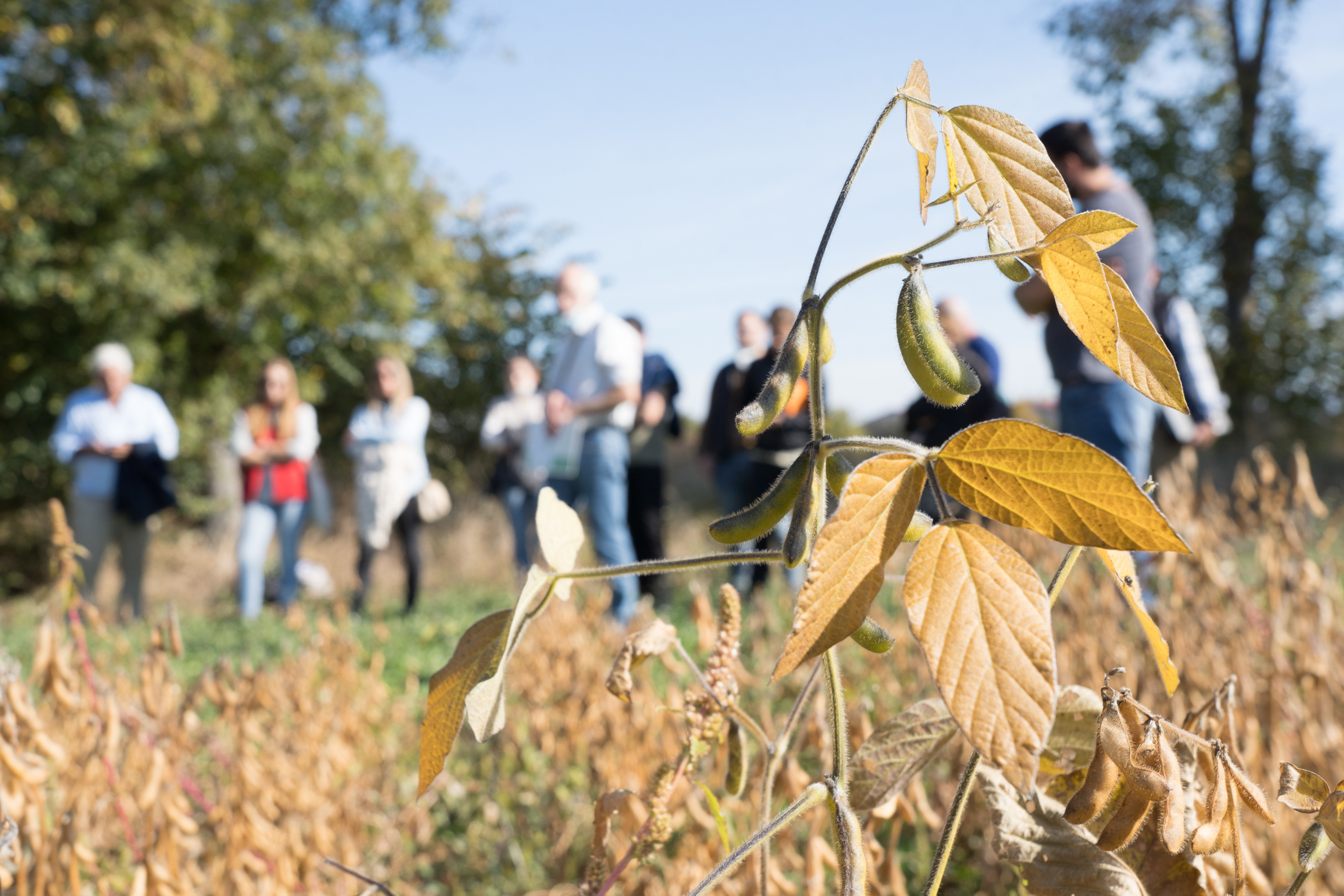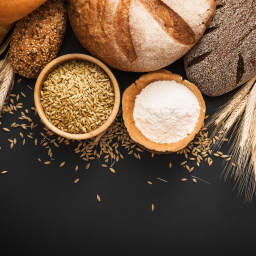NEW
We held the first annual visit to our experimental organic crop trials to present the latest developments
18 July 2022We held the first annual visit to our experimental organic crop trials to present the latest developments
- According to data from the Organic Agriculture and Food Council of Euskadi (Ekolurra), the amount of land dedicated to organic farming in 2021 went up 16% vs. 2020, going from 6,789 hectares to 7,905
- In this context, the NEIKER technological centre led its first tour of the year of its organic farm experimental trials and presented the latest advancements
- The tour of the Arkaute (Araba) centre showcased the trials of new varieties of beet, squash, corn, edamame and wheat for organic flour production
According to the European Union, 25% of European land dedicated to agriculture should be organic by 2030 to make food production healthier and more environmentally-friendly. In the case of Euskadi, organic production is gaining ground every year thanks to growing demand from consumers and the hard work of producers and institutions. The latest data from the Organic Agriculture and Food Council of Euskadi (Ekolurra) confirms just that: in 2021, the area dedicated to organic farming went up 16% vs. the previous year, going from 6,789 hectares to 7,905.
Research into new varieties is of paramount importance to ensure organic farming continues gaining ground in the region. In this context, today, Basque Research and Technology Alliance (BRTA) member, NEIKER technological centre’s plots in Arkaute (Araba) became a showcase for the present and future of organic farming. The major players of the agricultural sector had the opportunity to meet at its facilities to take the standard tour of the plots where NEIKER conducts its experimental trials on organic crops.
The tour presented the latest developments of the NEIKER trials on summer crops, the results of the trials from previous campaigns as well as proposals for future trials. NEIKER also presented new beet, squash, corn, edamame – a highly nutritious food – and new commercial varieties of wheat for organic flour. “Some wheat grain performed well, was high in quality and could be used to make bread with organic flour produced in Euskadi”, Roberto Ruiz de Arcaute, researcher in the Plant Protection and Production Department at NEIKER, explained at the event.
Afterwards, the group toured the centre’s experimental organic fields on the farm in Arkaute: a total of eight hectares where trials are carried out on organic varieties of soy for human consumption and buckwheat, as well as the research on new fertilisers, among other things.
This work is part of the Organic Production Enhancement Plan (FOPE), promoted by the Basque government and spearheaded by NEIKER and the Organic Agriculture and Food Council of Euskadi (Ekolurra). As Ruiz de Arcaute noted, “these trials are essential to overcoming the major challenges posed by FOPE: help the agricultural sector increase organic production and develop the transformation and commercialisation chain while strengthening demand for local organic product”.
Organic production on the rise
According to data from the Organic Agriculture and Food Council of Euskadi (Ekolurra), in 2021, the number of organic producers went up 8% vs. 2020, going from 658 to 710. By crop, the most notable increases were seen in fruit (from 375 to 404 hectares, up 8%), wine grapes (from 984 to 1,150, up 16%), nuts (from 26 to 39, up more than 50%) and grazing grass, pasture, fodder, and oilseed (from 4,502 to 5,684 hectares, up 26%). By province, in 2021, Araba had 59% of the region’s organic farming hectares, while Bizkaia and Gipuzkoa had equal parts of the remaining portion.
One of the drivers of growing organic production in Euskadi is the Organic Production Enhancement Plan (FOPE), created to incentivise organic production in the Basque Country and respond to society’s growing demands for organic products. Thanks to the effort made by producers as well as institutions, more hectares of land are increasingly being used for organic crops in Euskadi.
Implemented in 2014, the plan has the overall goal of increasing organic production and developing the associated transformation and commercialisation chain. A few of the medium and long-term goals include increasing the number of operators and transformers, boosting local consumption and expanding the surface area and profitability of organic production. Taking place twice a year, once in spring and once in the fall, these open houses to showcase trials are part of the Organic Production Enhancement Plan (FOPE) and are also used as a networking opportunity for the different players in the organic farming industry.




